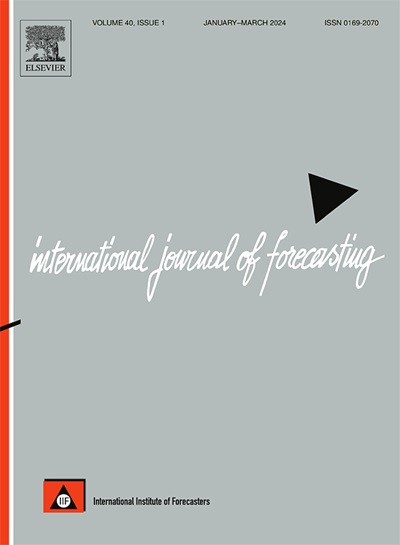衡量概率一致性以识别优秀预测者
IF 6.9
2区 经济学
Q1 ECONOMICS
引用次数: 0
摘要
预测,或对不确定事件的主观概率评估,有两个特点:一致性,即判断内部一致的程度,对应性,即判断准确的程度。最近的证据表明,更连贯的预测往往更准确。然而,目前还没有一个很好的概率相干性的独立测量方法。我们开发并验证了一致性预测量表(CFS)。这个问卷评估人们理解和应用概率推理规则的程度,如联合概率和不联合概率之间的关系、概率互补性、随机优势和单调性。在三场奖励预测比赛中,包括一场来自在线公共预测平台的比赛,CFS得分越高的评委也越准确。值得注意的是,在所有比赛中,CFS在预测判断准确性的解释力方面主导了所有管理的个体差异和人口统计指标,提供了一致性和准确性密切相关的经验证据。本文章由计算机程序翻译,如有差异,请以英文原文为准。
Measuring probabilistic coherence to identify superior forecasters
Forecasts, or subjective probability assessments of uncertain events, are characterized by two qualities: coherence, the degree to which the judgments are internally consistent, and correspondence, the extent to which judgments are accurate. Recent evidence suggests that more coherent forecasts tend to be more accurate. However, currently, there is no good stand-alone measure of probabilistic coherence. We developed and validated the Coherence Forecasting Scale (CFS). This questionnaire assesses how well people understand and apply probabilistic reasoning rules such as relations between joint and disjoint probabilities, probability complementarity, stochastic dominance, and monotonicity. In three incentivized forecasting tournaments, including one from an online public forecasting platform, judges who scored higher on the CFS were also more accurate. Notably, across all tournaments, the CFS dominates all administered individual difference and demographic measures in explanatory power predicting judgment accuracy, providing empirical evidence that coherence and accuracy are strongly linked.
求助全文
通过发布文献求助,成功后即可免费获取论文全文。
去求助
来源期刊

International Journal of Forecasting
Multiple-
CiteScore
17.10
自引率
11.40%
发文量
189
审稿时长
77 days
期刊介绍:
The International Journal of Forecasting is a leading journal in its field that publishes high quality refereed papers. It aims to bridge the gap between theory and practice, making forecasting useful and relevant for decision and policy makers. The journal places strong emphasis on empirical studies, evaluation activities, implementation research, and improving the practice of forecasting. It welcomes various points of view and encourages debate to find solutions to field-related problems. The journal is the official publication of the International Institute of Forecasters (IIF) and is indexed in Sociological Abstracts, Journal of Economic Literature, Statistical Theory and Method Abstracts, INSPEC, Current Contents, UMI Data Courier, RePEc, Academic Journal Guide, CIS, IAOR, and Social Sciences Citation Index.
 求助内容:
求助内容: 应助结果提醒方式:
应助结果提醒方式:


